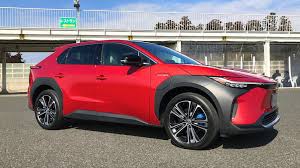
EV Tax Credit Removal Could Shift Car Buying Trends More Than Price
The ongoing debate around electric vehicle (EV) incentives has gained traction, especially with former President Donald Trump’s recent suggestion to eliminate the EV tax credit. This proposal has sparked concerns that the removal of this incentive could have a more significant impact on car buying decisions than the actual price of the vehicles themselves.
The Role of the EV Tax Credit in Consumer Decision Making
The EV tax credit, which offers up to $7,500 off the price of an electric car, has long been a key factor influencing consumer decisions. For many buyers, the tax credit makes the otherwise expensive EVs more affordable, allowing them to choose green technology over traditional gasoline-powered cars.
According to recent studies, many consumers are willing to pay a premium for an electric vehicle, but the financial incentive makes that decision easier. The EV tax credit plays a crucial role in leveling the playing field between EVs and more affordable internal combustion engine vehicles.
Trump’s Proposal: A Shift Toward Market-Driven EV Adoption?
In an effort to make the market more competitive, Trump has proposed axing the EV tax credit, believing that it could lead to more innovation and a more market-driven approach to EV adoption. However, this suggestion has met with mixed reactions. Supporters of the tax credit argue that the credit is necessary to encourage the adoption of EVs, especially given the high upfront costs of electric cars compared to their gasoline counterparts.
On the other hand, critics argue that government incentives distort the market and hinder the progress of private industry innovation. While this perspective focuses on the long-term view of sustainable EV growth, it overlooks the immediate financial barriers that many consumers face.
The Psychological Impact: Will Consumers Hold Back?
The EV tax credit has not just been a financial incentive, but a psychological one as well. Consumers who are on the fence about purchasing an EV might feel more confident knowing they can receive a tax break. Without that incentive, potential buyers could be less inclined to make the switch, even if they understand the environmental and long-term cost savings of owning an electric vehicle.
In fact, recent surveys have shown that consumers often cite the cost of EVs as a barrier to adoption, more so than the environmental benefits or savings on fuel. Without the tax credit, EVs may appear less affordable, which could deter a significant portion of the population from making the transition.
The Potential Market Shift: How Much Will Prices Matter?
Although the elimination of the EV tax credit would make EVs more expensive in the short term, car buyers will still prioritize price as a major factor. However, for many, the tax credit has served as a way to offset the higher initial cost of electric cars. Without it, the price tag of an EV might seem prohibitive, especially in comparison to traditional vehicles with lower upfront costs.
That being said, the future of EVs is not solely dependent on price. Technological advancements in battery life, charging infrastructure, and overall vehicle performance are also factors that could influence consumer choices. However, without the tax incentive, the adoption rate of EVs could be slower than anticipated, as many consumers may wait for further price reductions or better incentives from automakers.
Conclusion: The EV Tax Credit’s Impact Cannot Be Underestimated
Trump’s proposal to remove the EV tax credit has the potential to reshape the EV market in the United States. For many consumers, the tax credit is a crucial factor in making EVs more affordable. While some may argue that the market should drive EV adoption, the reality is that the financial barrier is still significant for most consumers.
As the debate continues, it’s clear that the EV tax credit has a lasting impact on consumer behavior. Whether or not the credit survives in its current form will significantly influence future car-buying decisions, particularly for those on the fence about switching to an electric vehicle.

